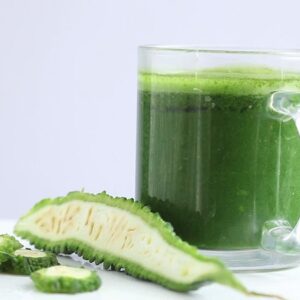Maintaining healthy, youthful-looking skin involves more than just a robust skincare routine; it also relies on the nutrients we provide our bodies. Collagen, a vital protein responsible for skin elasticity and firmness, plays a significant role in skin health. Incorporating collagen-rich foods into your diet can help support your skin’s natural beauty from within. Here, we’ll explore ten of the best collagen foods to nourish your skin and promote a radiant glow.
Top 10 Collagen Rich Foods In India:
“Elevate your skincare and haircare routine with our selection of the 10 best collagen-rich foods. From nourishing fruits to protein-packed options, discover natural sources that promote collagen production for vibrant skin and healthy hair.”
1. Bone Broth:
Bone broth is a collagen powerhouse made by simmering animal bones and connective tissue. It’s rich in collagen, gelatin, and amino acids like proline and glycine, essential for skin health. Regular consumption of bone broth can help improve skin elasticity and hydration.
2. Salmon:
Salmon is a great source of omega-3 fatty acids and contains peptides that support collagen production. These fatty acids help moisturise and supple skin, reducing inflammation and promoting a youthful complexion.
3. Eggs:
Eggs contain nutrients vital for skin health, including collagen-supporting amino acids such as proline and glycine. Additionally, egg yolks contain biotin, a B vitamin that aids skin repair and regeneration.
4. Berries:
Berries like strawberries, blueberries, and raspberries are packed with antioxidants that combat free radicals, which can degrade collagen and accelerate skin ageing. Their high vitamin C content supports collagen synthesis, promoting firmness and elasticity.
5. Avocado:
Avocado is abundant in healthy fats, vitamins E and C, and antioxidants, all of which contribute to skin hydration and elasticity. The fats in avocado help maintain the skin’s lipid barrier, preventing moisture loss and keeping the skin soft and supple.
6. Leafy Greens:
Leafy greens such as spinach, kale, and Swiss chard are rich in vitamin C, essential for collagen synthesis. Additionally, they contain chlorophyll, which can help protect the skin from damage caused by UV radiation and environmental pollutants.
7. Citrus Fruits:
Citrus fruits like oranges, lemons, and grapefruits are excellent sources of vitamin C, a crucial nutrient for collagen production. Vitamin C also acts as an antioxidant, neutralizing free radicals and supporting skin repair and rejuvenation.
8. Bell Peppers:
Bell peppers, particularly red and yellow, contain vitamin C and beta-carotene, contributing to collagen formation and skin health. They also contain antioxidants that protect the skin from oxidative stress.
9. Almonds:
Almonds are rich in vitamin E, an antioxidant that helps protect the skin from sun damage and premature ageing. Additionally, vitamin E supports collagen synthesis, promoting firmness and elasticity.
10. Pumpkin Seeds:
Pumpkin seeds are a great source of zinc, a mineral essential for collagen production and skin repair. Zinc also helps regulate oil production, preventing clogged pores and promoting healthy skin.
What Is Collagen?
Collagen is the most abundant protein in the human body, constituting a significant portion of the skin, bones, muscles, tendons, and ligaments. It’s often called the body’s “glue” because it provides structure and support to various tissues and organs. Collagen comprises amino acids, primarily glycine, proline, and hydroxyproline, essential for maintaining skin elasticity, firmness, and overall structural integrity.
What Happens To Your Body If Collagen Is Low?
When collagen levels in the body are low, it can have several implications for overall health and well-being, affecting various tissues and organs. Here are some of the potential effects of low collagen levels:
- Skin Aging: Collagen depletion is closely associated with skin ageing. Reduced collagen levels can lead to a loss of skin elasticity, firmness, and hydration, forming wrinkles, fine lines, and sagging skin.
- Joint Pain and Stiffness: Collagen provides structure and support to joints, helping to maintain their flexibility and mobility. Low collagen levels can contribute to joint pain, stiffness, and decreased range of motion, increasing the risk of osteoarthritis.
- Muscle Weakness: Collagen is a critical component of muscle tissue, providing strength and stability. Insufficient collagen levels may lead to muscle weakness, decreased muscle tone, and impaired physical performance.
- Bone Loss: Collagen is a major component of bone tissue, contributing to its strength, flexibility, and density. Low collagen levels can weaken bones, increasing the risk of fractures and osteoporosis.
- Digestive Issues: Collagen plays a role in maintaining the integrity of the digestive tract lining. Low collagen levels may compromise gut health, leading to bloating, indigestion, and leaky gut syndrome.
- Hair and Nail Problems: Collagen supports the structure and growth of hair and nails. Reduced collagen levels may result in brittle nails, hair loss, and slower growth.
- Poor Wound Healing: Collagen is essential for wound healing, providing the framework for new tissue formation. Low collagen levels can impair the body’s ability to repair damaged skin, leading to delayed wound healing and increased susceptibility to infections.
- Weakened Blood Vessels: Collagen contributes to the strength and elasticity of blood vessel walls. Low collagen levels may weaken blood vessels, increasing the risk of cardiovascular issues such as hypertension and aneurysms.
Overall, maintaining adequate collagen levels is crucial for supporting the health and function of various tissues and organs in the body. Strategies such as consuming collagen-rich foods, taking collagen supplements, practising good skincare habits, and leading a healthy lifestyle can help support collagen production and preserve overall well-being.
How To Restore Collagen In The Face?
Restoring collagen in the face can help improve skin elasticity, firmness, and overall appearance. While it’s impossible to reverse the natural ageing process entirely, several strategies can help stimulate collagen production and support collagen preservation in the facial skin. Here are some effective ways to restore collagen in the face:
- Use Collagen-Boosting Skincare Products: Look for skincare products containing ingredients known to stimulate collagen production, such as retinoids (retinol, tretinoin), peptides, vitamin C, and niacinamide. These ingredients can help promote collagen synthesis and improve skin texture and firmness.
- Protect Your Skin from UV Damage: UV radiation from the sun can accelerate collagen breakdown and lead to premature skin ageing. Protect your face by wearing sunscreen with broad-spectrum protection (SPF 30 or higher) daily, even on cloudy days, and avoid prolonged sun exposure, especially between 10 a.m. and 4 p.m.
- Eat a Collagen-Rich Diet: Incorporate foods rich in collagen-building nutrients into your diet, such as lean protein sources (chicken, fish, tofu), colourful fruits and vegetables, nuts and seeds, and bone broth. These foods provide essential amino acids, vitamins, and minerals for collagen synthesis.
- Consider Collagen Supplements: Collagen supplements, such as collagen peptides or hydrolyzed collagen powder, can support collagen production from within. These supplements are typically derived from animal sources like bovine or marine collagen and can be mixed into beverages or added to smoothies.
- Practice Facial Massage: Regular facial massage can help improve blood circulation, lymphatic drainage, and collagen production in the skin. Use gentle, upward strokes and circular motions while applying facial oil or serum to enhance the massage’s benefits.
- Get Sufficient Sleep and Manage Stress: Adequate sleep and stress management are essential for maintaining healthy skin and supporting collagen production. Aim for 7-9 hours of quality sleep per night and practice stress-relieving techniques such as mindfulness, yoga, or deep breathing exercises.
Combining these strategies and incorporating collagen-boosting practices into your skincare routine and lifestyle can help restore and maintain collagen levels in the face, resulting in a more youthful, radiant complexion.
Incorporating collagen-rich foods into your diet is a natural and effective way to support skin health and promote a youthful glow. By enjoying various nutrient-dense foods like bone broth, salmon, eggs, and colourful fruits and vegetables, you can nourish your skin from the inside out, helping to maintain its elasticity, firmness, and overall radiance. Remember, a balanced diet and proper skin care habits are key to achieving and maintaining healthy, beautiful skin for years.
Akshata Singh
Akshata Singh is a senior content writer with experience of 6 years. She has been writing articles for lifestyle blogs, i.e., Health, Beauty, Fashion, Interior, Products & many more. To know more about her works, do check out the below profiles.





